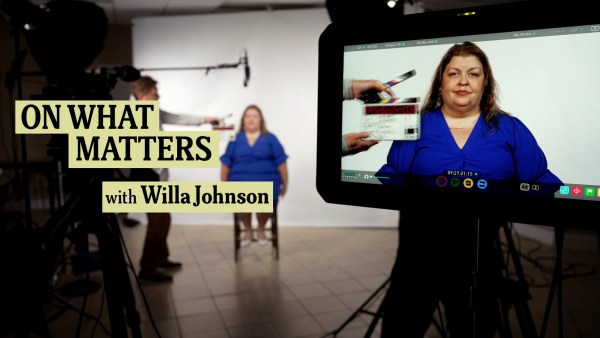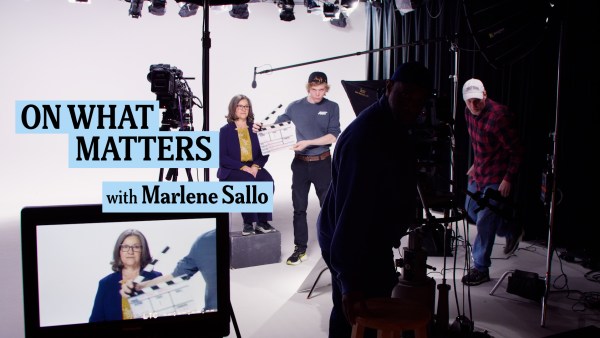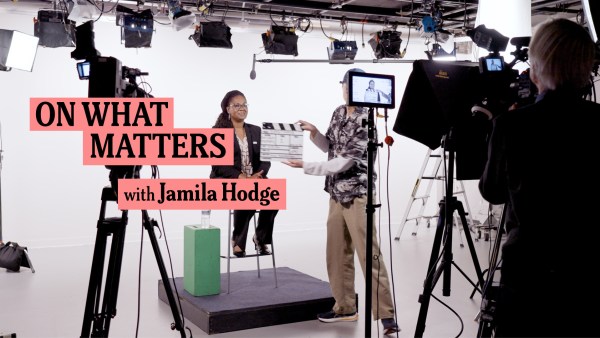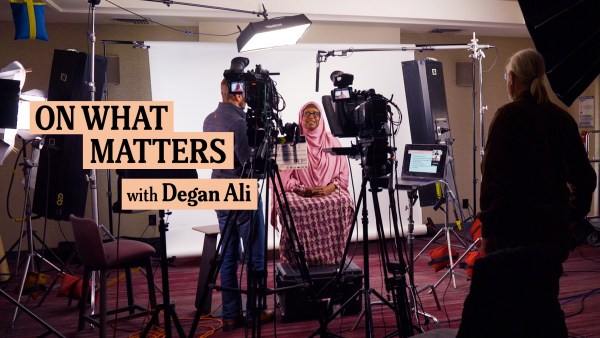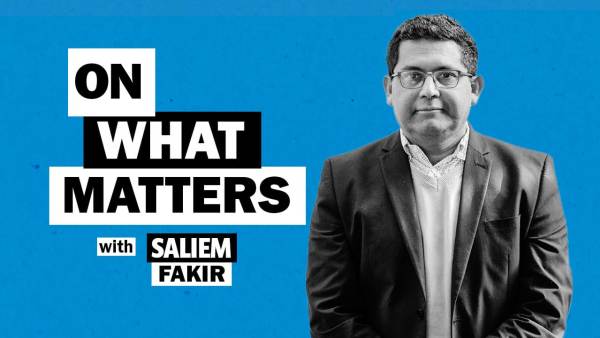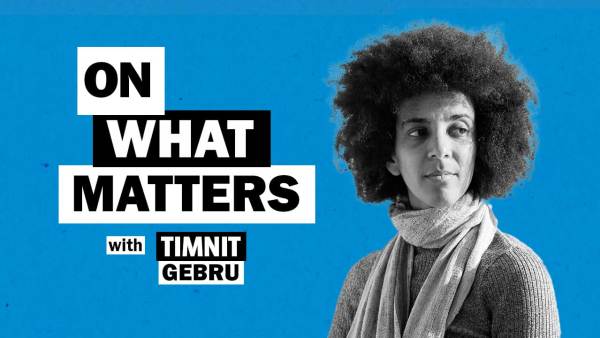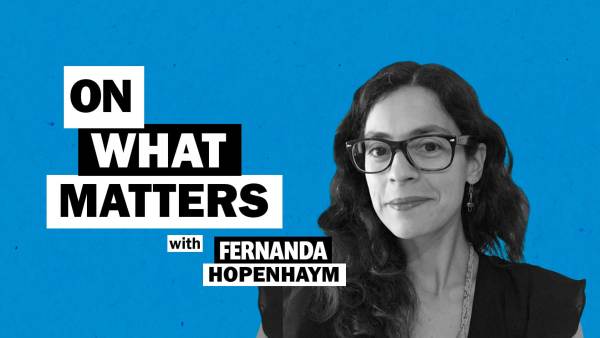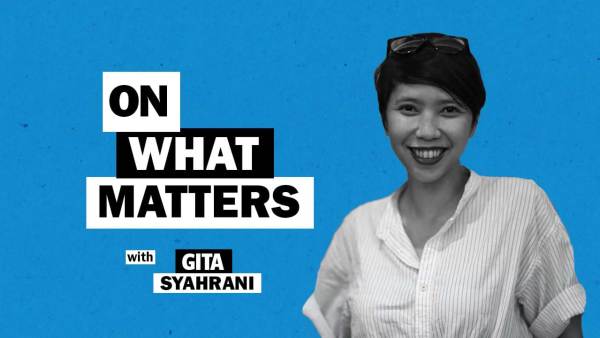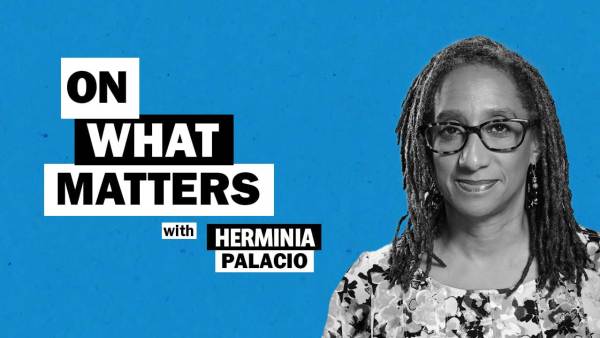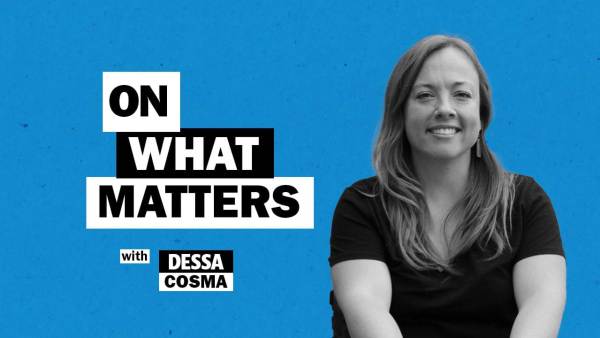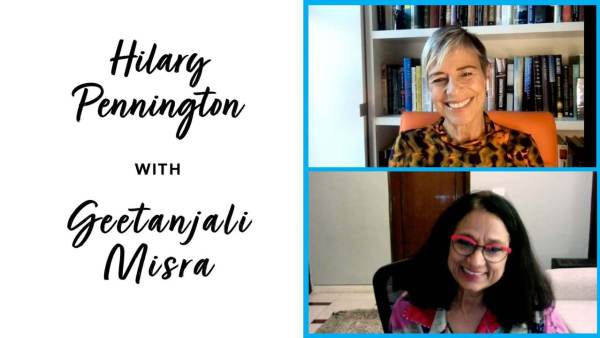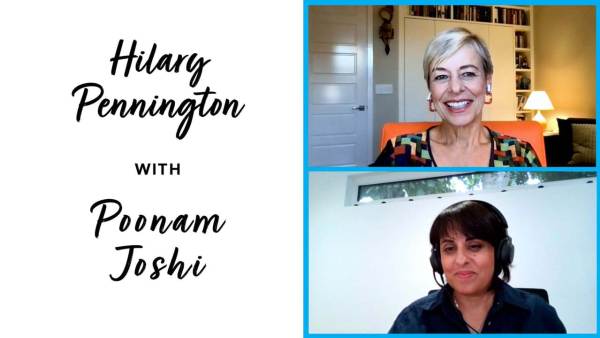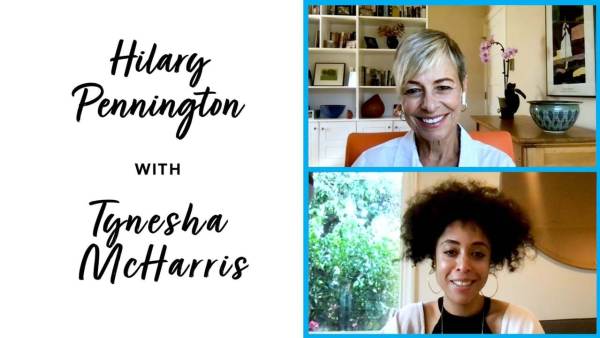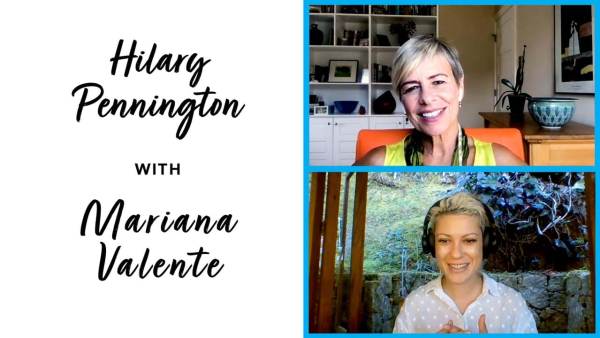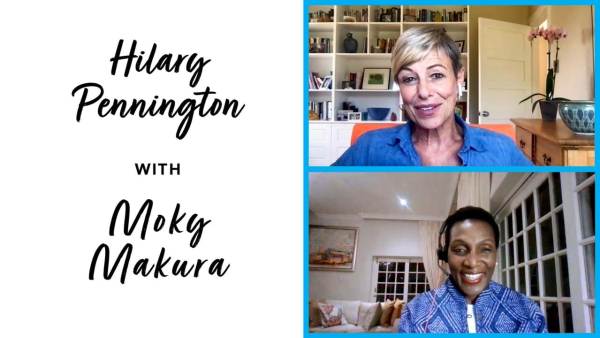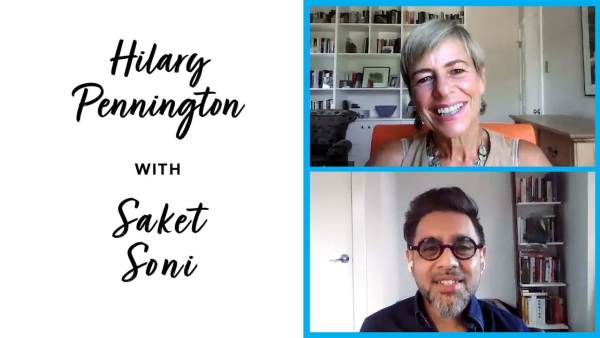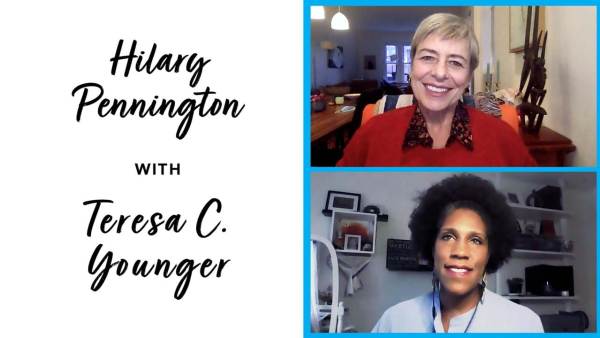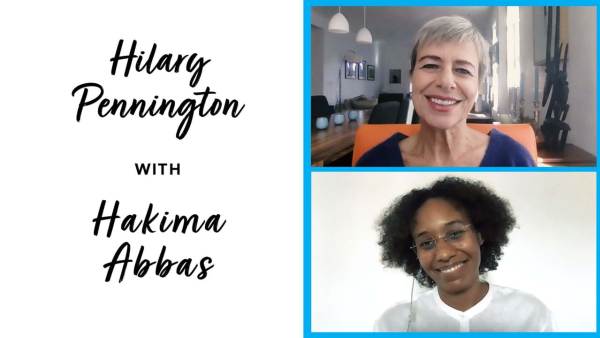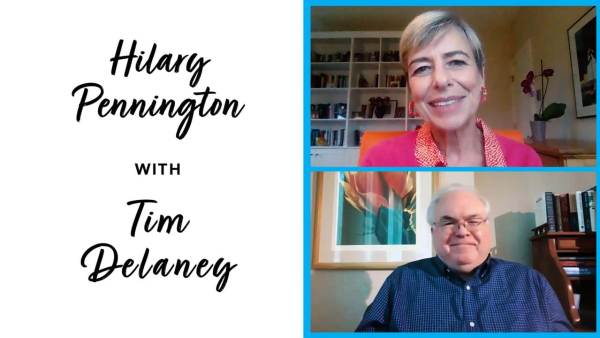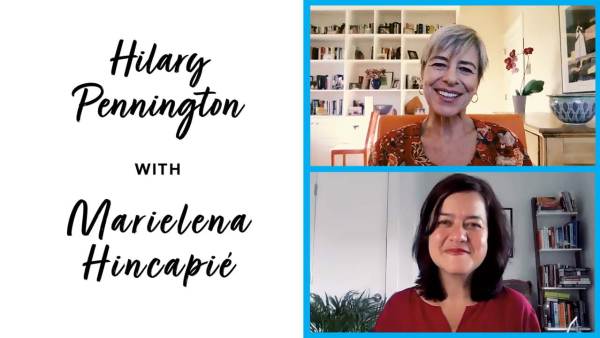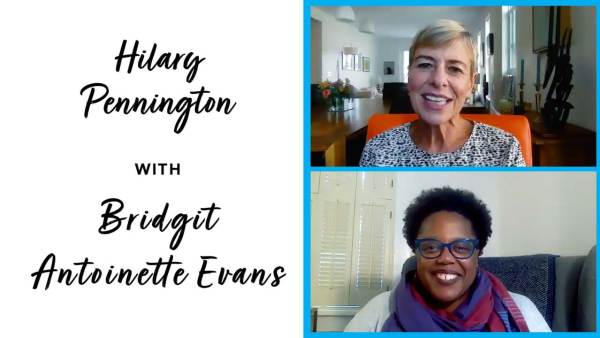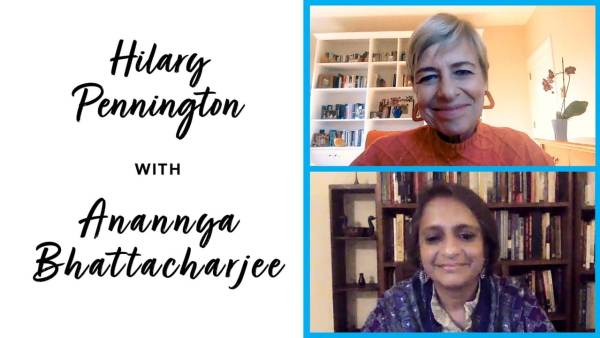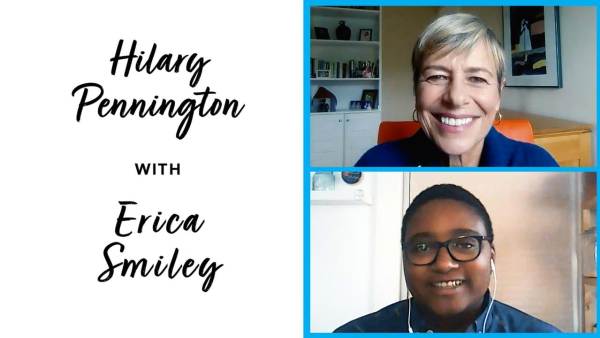The Power of Restorative Justice With Teresa Njoroge and Hilary Pennington

Transcript
HILARY PENNINGTON: Hi. I’m Hilary Pennington. Thank you for joining us for “On What Matters.” I’m the executive vice president for programs at the Ford Foundation. I’m a white, middle-aged, small woman with short hair and a pink dress, and my pronouns are she/hers. Today I’ll be speaking with grantee and Ford Global Fellow and my friend, Teresa Njoroge, about her work to restore dignity and hope for people who have been involved in Kenya’s justice system. Welcome, Teresa.
TERESA NJOROGE: Thank you very much for having me, Hilary. I am so excited to have this conversation. My name is Teresa Njoroge: founder, CEO, Clean Start Solutions Limited, based in Kenya. We work with women, girls, and children who are impacted by the criminal justice system. My pronouns: she/her. I’m a tall black woman in her 40s.
HILARY PENNINGTON: I’m so excited for this conversation. Let’s get started. So my first question, Teresa: You do such brave and inspiring work, and you do it really to address and to fight how the criminal justice system ends up making it a crime to be poor. Can you tell us a little bit more about your work and how you do it?
TERESA NJOROGE: This work came out of the proximity with the very poor, the very marginalized. Those who are not included, but get such injustice when they get imprisoned, not because they are criminals, but because of their social economic status. Because they get into prison due to petty offenses. In Kenya, 90% of those behind bars are in due to petty offenses such as loitering, selling on the streets, making local liquor, you know, and it’s those who can’t or won’t pay bribes, or can’t afford the fines. And I got into this work due to the proximity with them when I personally got wrongfully and maliciously prosecuted and ended up being falsely incarcerated to serve a one-year sentence, a sentence that I served with my three-month-old daughter.
HILARY PENNINGTON: With your three-month-old daughter!
TERESA NJOROGE: Indeed. And it was such a difficult time. And in the course of that one year, meeting hundreds of children who had accompanied their mothers as well behind bars and hearing the cry of these women: “How can we get justice?”
HILARY PENNINGTON: Yeah.
TERESA NJOROGE: Why is it that I’m in prison because I’m poor?
HILARY PENNINGTON: Yes.
TERESA NJOROGE: What do I do when I leave prison to ensure that I don’t come right back? And so we’ve got to change the laws. These laws that criminalize poverty.
HILARY PENNINGTON: Yes.
TERESA NJOROGE: And these laws, unfortunately, are laws that we inherited when Kenya gained its independence from our colonialists, the British. And these laws continue to sit in Kenya’s penal code. Post my incarceration and post my exoneration, I formed Clean Start and one of the big pillars of our work is systemic change. To do away with the systemic barriers that criminalize the poor. And we have had such success because, for the first time, we’ve got a bill in Parliament that’s about to become law. And this will be such a huge win for Kenya because it will then delete all the petty offenses that are still in Kenya’s penal code. So that’s one of the greatest pillars and works of advocacy. And, you know, systemic change that Clean Start does.
HILARY PENNINGTON: So if that were all you had done, that would be amazing.
TERESA NJOROGE: Indeed.
HILARY PENNINGTON: But it isn’t.
TERESA NJOROGE: It isn’t.
HILARY PENNINGTON: And so you also have created an organization through Clean Start that helps put people back on their feet.
TERESA NJOROGE: Exactly.
HILARY PENNINGTON: And you chose to make it a social enterprise. So tell us a little bit about why you made that choice.
TERESA NJOROGE: So the social enterprise is to really give these women a soft landing and decent means of livelihood so they won’t go right back into the actions and activities that led them into prison in the first place. The social enterprise model sees to it that our constituents, our beneficiaries are not dependent. Because at the end of the day, they also want and need the dignity to provide for themselves, to work and provide for themselves, not just being given. And so we set up these businesses where these women find this decent means of livelihood and provide for themselves. And that’s the model that we have. So we turn the grants that we get and some of the capital that we get into the businesses that help these women have decent means of livelihood.
HILARY PENNINGTON: Which is amazing.
TERESA NJOROGE: Yeah.
HILARY PENNINGTON: And I know that as you do that, you also partner with government. Tell us a little bit about how you do that and why you do that.
TERESA NJOROGE: To be able to do any meaningful work that is scalable in the area of social justice, a huge responsibility falls on governments. You know, when you look at providing employment opportunities, ensuring that poverty rates are on the decline. Health care, you know, and access for all, education, being equal. And the supply being available for all. You know, these are responsibilities that truly fall on government and for the constituents that we work with, a majority of those who are behind bars, they didn’t get access to these opportunities. It’s the lack of education. It’s the lack of economic opportunities. It’s the lack of health care that’s available for all. And so at the end of the day, Clean Start is just coming in to support government filling this gap.
HILARY PENNINGTON: You’re filling a gap.
TERESA NJOROGE: We’re filling a gap that the government is not being able to provide to these millions of people who are at the bottom of the pyramid. And we partner with government to take proactive action to provide the services that they are meant to provide for these constituents. And so we are working with government, to ensure that we’ve got opportunities when it comes to employment. You know, 65% of the incarcerated are youth who had never had a first time job ever. And so Clean Start comes in to fill that gap to ensure that the youth are finding employment. These women, girls, and children are also finding constructive things to do. And besides working directly with government to take proactive action to fill in these gaps, we’re also working with government to see to it that, you know, these policies shift.
HILARY PENNINGTON: Yes.
TERESA NJOROGE: And we’re implementing these policies that we’re developing. And so those are the two main areas that Clean Start works with government, to see to it that this is long-term, it’s scalable, and it’s sustainable.
HILARY PENNINGTON: Well, I love that. I mean, you’re, you’re, you have a model that shines the light on how government can work better. And that’s amazing. So let’s talk a little bit about what role philanthropy has played in your work. You talk about the importance of not being dependent. What role has philanthropy played in your work? Where has it been helpful? Where has it been harmful?
TERESA NJOROGE: Philanthropy is such a critical piece of this work. Clean Start has come this far–we’re about to celebrate our 10th year anniversary next year–and, were it not for positive philanthropy, we wouldn’t have come this far. And so, when the philanthropists lean in to listen and learn, and not use their position negatively, as a power point or power brokerage, because we’ve had those instances where…
HILARY PENNINGTON: Yes, sometimes we do think we know it all.
TERESA NJOROGE: You know, and unfortunately, it’s the people on the ground, the people who are doing this on a day-to-day basis, who are close to these problems, who truly know what needs to be done. You know, and honestly speaking, what has worked for us is multi-year grants, unrestricted funding and especially funding the operations and not just the programming. You know, that really works. And funders and philanthropists who listen to our feedback, who journey with us, who journey alongside us as our partners. You know, as our partners in this work, that makes all the difference. But where there has been a power play, it has really worked adversely. And the losers are the day-to-day poor people who truly would have benefited from that dollar coming their way.
HILARY PENNINGTON: Well, I love what you’re describing because you are talking about a partnership that puts dignity and impact at the center. But you can’t achieve that through small-scale support over short periods of time, especially in the kind of work that you do.
TERESA NJOROGE: Yeah, yeah, it’s long-term. It’s endless, you know, so we’ve got to look at it from a long-term perspective. And so when the philanthropy comes in, we’re in this for the long haul. So they need to come in and look at it from a long-term perspective, and, and help us to do the distance.
HILARY PENNINGTON: Well one day, maybe some of the women that are starting enterprises with you will themselves be philanthropists, politicians, changemakers. So thank you for this. And we’re going to move—We’ve got so many questions from people across social media who want to hear more. So the first question comes from Dr. Aghan Oscar from Nairobi, Kenya. And he asks you, “How does mediation and arbitration fit into the judicial system?”
TERESA NJOROGE: That’s such an incredible question from Dr. Oscar, because mediation should be the model and the unfortunate part…
HILARY PENNINGTON: As opposed to incarceration.
TERESA NJOROGE: As opposed to incarceration. Incarceration and putting people into custody should truly be the last resort. But unfortunately, Hilary, we are overusing custodial sentencing. And in our case, where we’re dealing with women, girls, and children, this separates and breaks families, and the children who are the invisible victims of this overuse of custodial sentencing really are traumatized, suffer, and are on pathways to either the juvenile justice system or the criminal justice system themselves. And so mediation is so key and at Clean Start, we truly advocate and push for non-custodial sentencing, mediation, and alternative dispute resolution. It works. And we’ve got evidence because Kenya is always on to decongesting prisons. And I want to take a case in point, during the COVID time.
HILARY PENNINGTON: Yeah.
TERESA NJOROGE: We had to decongest the prisons. Our prisons are always over-congested. So during COVID, there was no other way but to decongest the prisons. A huge population was let out. We didn’t have increase in crime. On the contrary.
HILARY PENNINGTON: Fascinating.
TERESA NJOROGE: You know, people were with their families. But as soon as we were done with COVID, we got right back to congest our prisons. Why? Again, the poor, the vulnerable, filling in those spaces. So a lot of the cases, to be honest, can be resolved through alternative dispute resolution and mediation. So this is the way to go. And I must commend the first woman chief justice, Lady Justice Martha Koome. She’s doing incredible work.
HILARY PENNINGTON: You have an amazing chief justice.
TERESA NJOROGE: Oh my goodness. And she is a champion and visionary around mediation and alternative dispute resolution.
HILARY PENNINGTON: Our mental models limit us. You know, that’s such a powerful question.
TERESA NJOROGE: Yeah.
HILARY PENNINGTON: All right, so then our second question comes from Zimbabwe, from Makaita Chikamhi Magarezano, and Makaita wants to know what you believe are the most pressing issues facing the criminal justice system today and what steps should we take to address them effectively?
TERESA NJOROGE: I love that it comes from a different part of, you know, within the African continent, because what I’d like to say is that we’ve got very similar problems as much as the context is different. You see a lot of African countries still have the penal code from the colonialists. To be honest, the penal code we inherited was primarily to subjugate the citizens to a master who just wanted to control as they took over what belonged to the natives. It no longer serves us. Africa needs to rethink a justice system that suits its own citizens. A lot of those laws are out.
HILARY PENNINGTON: Yes.
TERESA NJOROGE: You know, the British, for example, don’t even, no longer use some of the laws we’re still applying that they left with us. Honestly, they don’t have place anymore in our books. So as a continent, let us rethink justice. Let us rethink laws that suit us. And honestly, before the colonizers came, we had our own justice system, you know, which was the barazas and people would resolve their issues.
HILARY PENNINGTON: They didn’t put people outside the community.
TERESA NJOROGE: Exactly. We can still use some of those. It’s still applicable. We’re very community-oriented, and we could still go back to that. And, you know, we could still resolve our issues. So let’s find ways that work for us and, you know, for our culture.
HILARY PENNINGTON: I love that. You know, I think you, you may have just answered the last question, but it’s from Honorable J.J. Opondo from Uganda. We did get questions from all over the continent for you, and he is similarly asking, “How can we fix the broken pillars of the criminal justice system in Africa?” And, and, I love that you are starting to go towards a way to reimagine things for a continent.
TERESA NJOROGE: Exactly. That suit the people. Honestly, that’s the basis of looking at this. We’ve got to have a justice system that’s people-centered. It’s about the people. So let’s have a justice system and pillars that work for the people. I mean, it’s about the people. So it’s got to be suitable to the people.
HILARY PENNINGTON: Absolutely.
TERESA NJOROGE: Yeah. Yeah.
HILARY PENNINGTON: Oh. Thank you. Thank you so, so much. You know, every time I see you, you give me so much inspiration and energy. I think your vision and the work that you’re doing is amazing. But I have to ask you because it’s hard work.
TERESA NJOROGE: Yeah.
HILARY PENNINGTON: And it’s a hard time. You know, it’s a time of so much division and suffering. So I want to ask you the final question, which I ask everyone on these interviews, which is: What gives you hope?
TERESA NJOROGE: Wow. Yeah, indeed. There’s so much going on across the world, which is heartbreaking to watch. Community for me has been such a beacon of hope. Hard-edged hope. Working and, you know, being with women who wind up poor, don’t have access to–whether it’s finance, justice, and just so many other social needs that they’d love to have, every single day–it’s seeing their resilience. It’s coming together as a community and together finding those solutions. And at the end of the day, knowing that the solutions lie with us. And then, of course, the many partners and allies who come and lean in and journey alongside us as community to bring the change. You know, at the end of the day, it will take the humility of each and every one of us to admit that we need to have a different lens and reimagine what this world could look like and be. And truly have love to see to it that we are audacious enough to bring that world to being.
HILARY PENNINGTON: I love that, and I love the image you paint of, of the women in the front and people coming along behind them and alongside them. So thank you, thank you so much for your work, for your spirit, for the world you’re calling into being. It’s really, really a privilege to know you and to spend time with you. Thank you.
TERESA NJOROGE: My pleasure, Hilary. Thank you so much for having me on “On What Matters.”
HILARY PENNINGTON: The “On What Matters” series now features over 20 social justice leaders discussing critical issues like humanitarian aid, restorative justice, and disability rights. Visit our website to watch the full series. And thank you to everyone who has joined these conversations.
End of transcript.
Accessibility Statement
- All videos produced by the Ford Foundation since 2020 include captions and downloadable transcripts. For videos where visuals require additional understanding, we offer audio-described versions.
- We are continuing to make videos produced prior to 2020 accessible.
- Videos from third-party sources (those not produced by the Ford Foundation) may not have captions, accessible transcripts, or audio descriptions.
- To improve accessibility beyond our site, we’ve created a free video accessibility WordPress plug-in.
Welcome to “On What Matters,” a conversation series in which Ford Foundation leaders talk to our social justice grantees on the frontlines of change.
In this episode, Teresa Njoroge, founder and CEO of Clean Start Solutions, and Hilary Pennington, executive vice president of programs at the Ford Foundation, discuss helping people who have experienced Kenya’s criminal justice system find dignity and hope through new employment opportunities.
Teresa and Hilary consider how social enterprises like Clean Start Solutions, which works to empower women affected by the criminal justice system, can contribute to a more just and equitable society by focusing on rehabilitation, reintegration, and social inclusion. Teresa opens up about her remarkable journey from wrongful imprisonment to criminal justice reform advocacy and how she is advising the next generation of leaders and community organizers.
Learn more about Clean Start Solutions at: https://cleanstartafrica.org/
